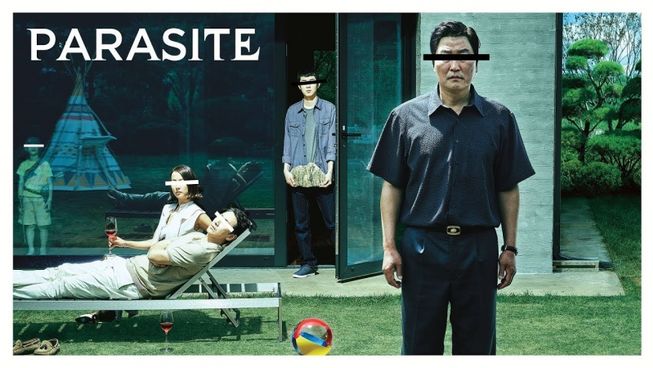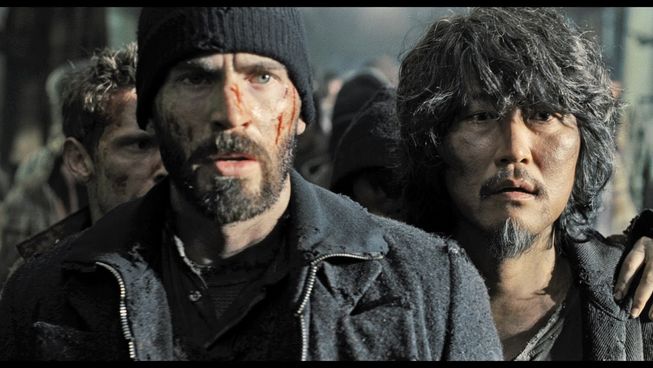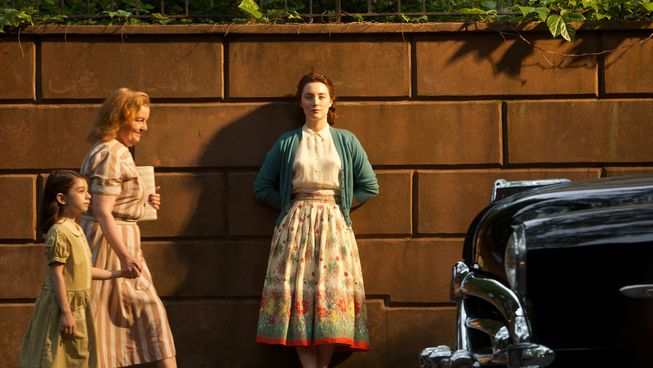
4.5 out 5 stars
The life of the immigrant has been a driving force for writers and filmmakers over the decades. To have a family leave behind everything they know and move around the world with the hopes of a new beginning provides the potential for significant dramatic tensions. What differentiates director Lee Isaac Chung’s latest film is that he tells the story through a Korean child's eyes as his family tries to make their new life in rural Arkansas.
This semi-autobiographical journey takes place in the transitional time of the 1980s. The Yi family originally migrated to California, but Jacob (Steven Yeun) hopes to do more with his life and moves his young family to rural Arkansas. His dream is to capitalise on Korean immigration to the US and grow produce for Dallas's markets. His wife Monica (Han Ye-ri) and her husband hold jobs at the local chicken hatchery as sexing experts. This means they identify the sex of the chicks before the birds are sold. Jacob excels at this specialised trade but hopes to put it behind him as he begins his farming dream. Their move includes their two young children, Anne (Noel Kate Cho) and David (Alan Kim), who have lived in the US most of their lives and speak English fluently.
As they struggle to make ends meet and connect with the local community, Jacob finally relents to his wife’s request. He allows her mother to migrate to Arkansas and live with them in their mobile home. Soon-ja (Youn Yuh-jung) is a feisty and outspoken woman who loves her family, but fails to connect with her grandchildren. In particular, David has difficulty relating to his grandmother and resents her for having to share his room. Between the problems of farming, tensions in their marriage, David’s heart murmur and the continual challenge of finding their place in the community, the Yi family seem to be continually on the brink of collapse. Yet, things do start to turn for them as the crops begin to grow and they manage to find a church, but will it be enough to keep them in Arkansas?
Fresh off the success of Parasite and the rise of Korean-influenced cinema, Lee Isaac Chung has managed to deliver one of the most endearing films of the year. As he mixes the strains of the immigrant cross-cultural experience with the everyday stresses of the family to show common threads of humanity. The director seamlessly moves from Korean to English to make the transitory aspects of the Yi’s lives a reality for the audience.
Even though the Arkansas characters did come off as parodies of the Southern US, the screenplay humanises the immigrant household. The script manages to make the whole visual journey accessible for anyone who is watching by showing the cultural nuances. An element complemented by outstanding performances from the whole cast and most notably Youn Yuh-jung, Steven Yeun and Alan Kim as young David.
How does faith impact the life an immigrant?
One key component of the script that is impossible to overlook is the value of faith in the Yi family and the community's lives. Despite the cultural nuances, both cultures expose the underlying importance of having a belief in God. This could be interpreted as odd and difficult to understand in some of the scenes. Still, it shows how people’s faith can provide a bridge between cultures. To determine which method of worship is correct, it might lead to some fascinating conversations after viewing this film.
Minari is a methodical and mesmerising cinematic encounter that will cause many to ponder life and culture. Lee Isaac Chung has managed to cross the cultural divide of two forms of storytelling in this project. An artistic combination that may take some viewers by surprise. Yet, suppose they are willing to embrace these differences. In that case, this will prove to be a sincere means of learning about the bigger world and being thoroughly entertained in the process.







